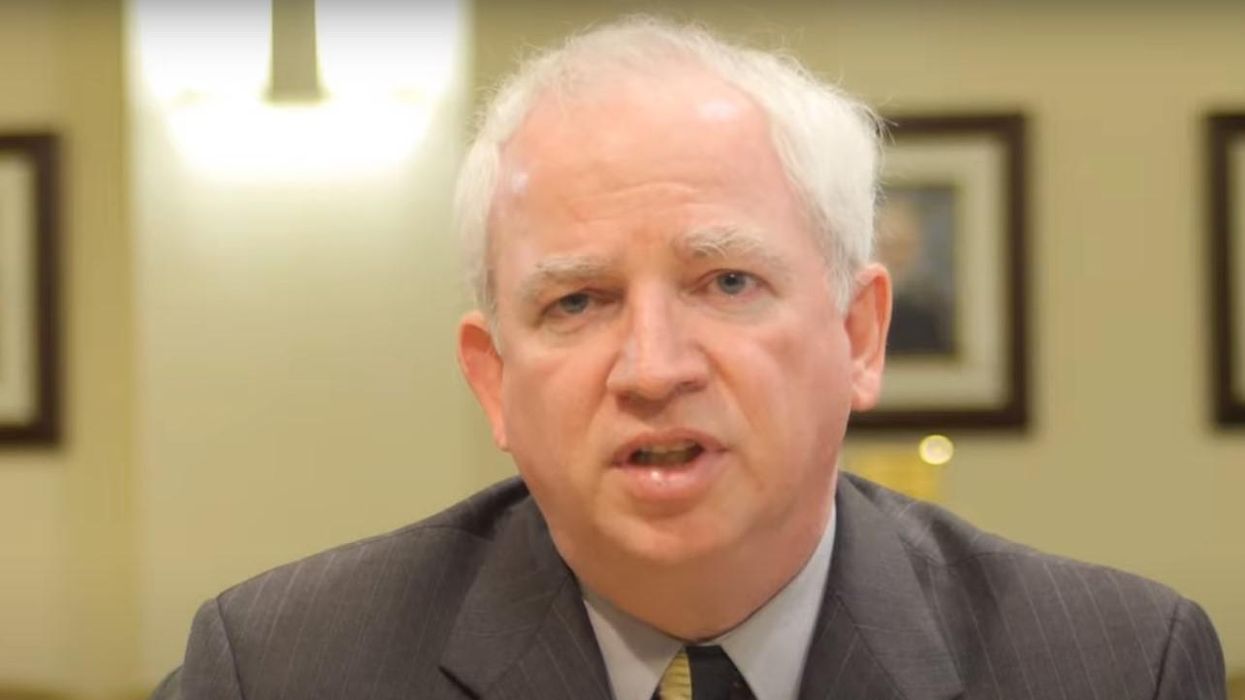Why a right-wing think tank’s 'censorship' claims are nonsense: conservative


John C. Eastman — the far-right attorney, Donald Trump ally and Claremont Institute extremist who devised a memo outlining a game plan for preventing now-President Joe Biden's Electoral College certification by Congress on January 6 — is being slammed as dangerously authoritarian by his critics, while Eastman and his Claremont colleagues see him as a victim of cancel culture. But Niskanen Center senior fellow Laura K. Field, in an article published by the conservative website The Bulwark on October 18, lays out some reasons why Eastman's cancel culture claims are nonsense.
Field explains, "You may know the Claremont Institute as the intellectual home of John Eastman, the lawyer behind the infamous six-point memo, who helped President Donald Trump concoct his plan for rejecting the Electoral College results on January 6…. In recent weeks, the Institute has been entangled in a dispute with the American Political Science Association. APSA is the country's premier professional association for political scientists, and the dispute with Claremont concerned Eastman's participation in APSA's annual conference. Spoiler alert: The conference is over, Eastman did not participate, and Claremont is claiming it has been censored — and even affirmatively defending Eastman and naming him in its latest fundraising efforts."
Eastman's claim that widespread voter fraud robbed Trump of a victory in the 2020 presidential election is a lie. Biden enjoyed a decisive victory, defeating Trump by more than 7 million in the United States' popular vote and winning 306 electoral votes. And numerous vote recounts in the states that Biden won, from Pennsylvania to Arizona, have made it abundantly clear that Biden legitimately won both the popular vote and the electoral vote — period.
Field argues that if the American Political Science Association and others shun Eastman, their criticisms of him are well-founded.
"Most members of the American Political Science Association are not fools, and they see the clear and immediate threat that Eastman's actions posed to American democracy," Field notes. "And so, when some APSA members noticed that the Claremont Institute was still maintaining ties to Eastman and that Claremont would be featuring Eastman on two panels at APSA's big annual meeting, they started pushing back."
Field continues, "They tweeted. They posted on Facebook and on blogs. They debated the appropriate course of action. People noticed that Claremont has apparently been using its involvement at APSA as a fundraising tool. In the week leading up to APSA's meeting this year, a few hundred individuals signed an open letter requesting that Eastman and Claremont be ousted from the conference. It seemed all but certain that there would be in-person protests of the Claremont panels at APSA."
But Field goes on to offer a "full disclosure," noting that the open letter "cited my July essay for The Bulwark about Claremont."
"While I was glad to see the letter circulating, I did not sign it," Field writes. "I am uncomfortable with the idea of any kind of ideological test for participants in political science conferences."
The Bulwark article that Field is referring to, published on July 13 and covered by AlterNet that day, was a scathing critique of the Claremont Institute — a right-wing think tank founded in 1979 by students of the late Harry V. Jaffa, who was a speechwriter for conservative Sen. Barry Goldwater's 1964 presidential campaign. Field's article, headlined "What the Hell Happened to the Claremont Institute?", had no problem with Goldwater conservatism; The Bulwark, for all its Trump-bashing, is still a right-wing website. But Field slammed Claremont for rejecting traditional conservatism and taking a toxic plunge into Trumpism, conspiracy theories and election denial. As Field and others at The Bulwark see it, Claremont has degenerated into an abyss of authoritarian thinking.
But while Field didn't sign the open letter, she remains vehemently critical of what Claremont has became.
"These days, though, the Claremont Review is not what it once was, and Claremont's web publication, the American Mind, routinely publishes pieces that damage the Institute's reputation for intellectual integrity," Field writes. "And so, their involvement in APSA is one of the few external legitimating elements remaining. Once that is lost, so goes much of the intellectual patina that is the Claremont trademark."